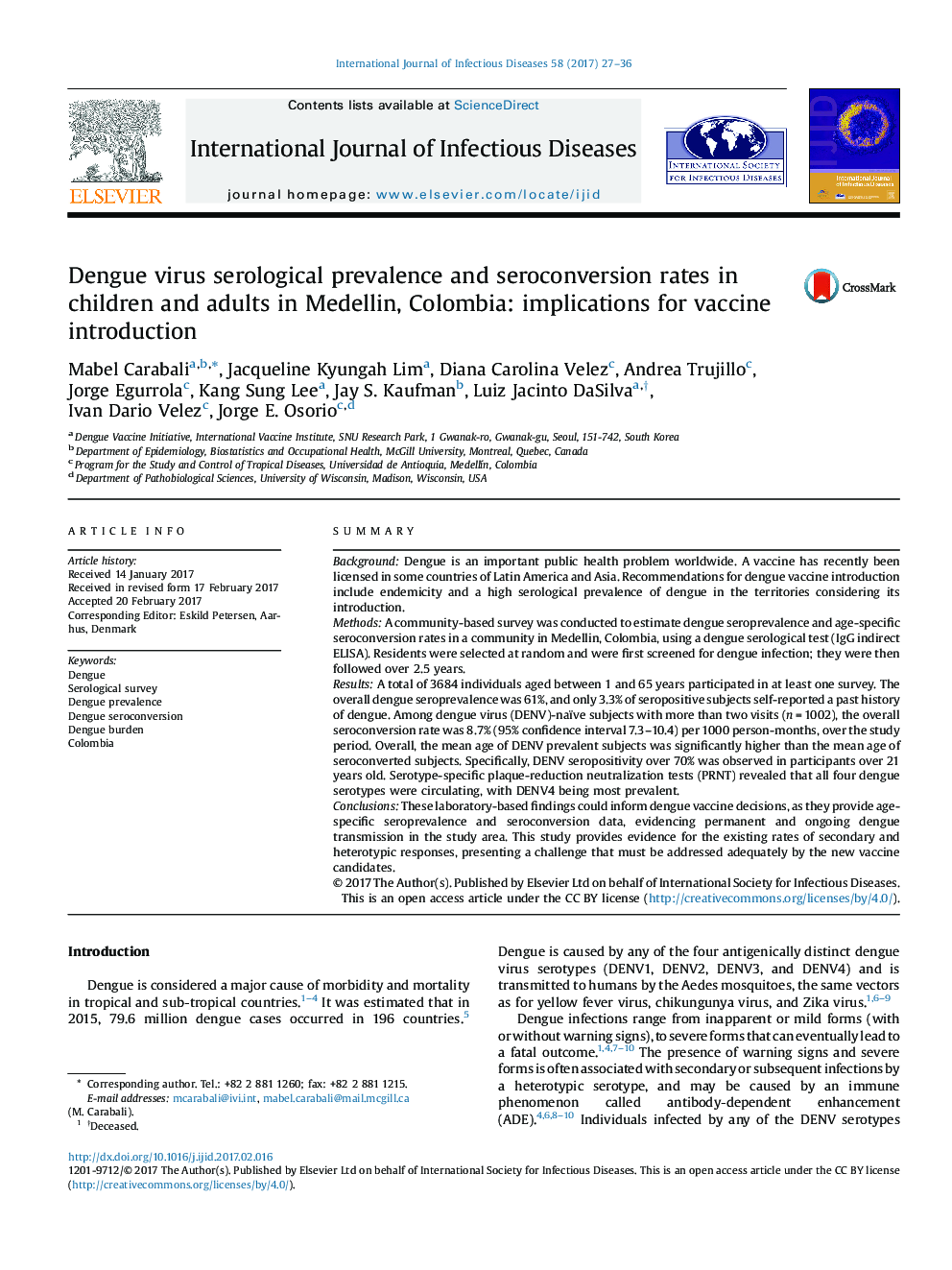| کد مقاله | کد نشریه | سال انتشار | مقاله انگلیسی | نسخه تمام متن |
|---|---|---|---|---|
| 5667535 | 1592035 | 2017 | 10 صفحه PDF | دانلود رایگان |
- A total of 3684 individuals between 1 and 65 years old participated in the survey.
- The overall seroprevalence by IgG Indirect ELISA was 61%.
- The overall seroconversion rate was 8.7% per 1000 person-months over 2.5 years.
- The highest rate of infection was observed during the fifth visit (February 2014).
SummaryBackgroundDengue is an important public health problem worldwide. A vaccine has recently been licensed in some countries of Latin America and Asia. Recommendations for dengue vaccine introduction include endemicity and a high serological prevalence of dengue in the territories considering its introduction.MethodsA community-based survey was conducted to estimate dengue seroprevalence and age-specific seroconversion rates in a community in Medellin, Colombia, using a dengue serological test (IgG indirect ELISA). Residents were selected at random and were first screened for dengue infection; they were then followed over 2.5 years.ResultsA total of 3684 individuals aged between 1 and 65 years participated in at least one survey. The overall dengue seroprevalence was 61%, and only 3.3% of seropositive subjects self-reported a past history of dengue. Among dengue virus (DENV)-naïve subjects with more than two visits (n = 1002), the overall seroconversion rate was 8.7% (95% confidence interval 7.3-10.4) per 1000 person-months, over the study period. Overall, the mean age of DENV prevalent subjects was significantly higher than the mean age of seroconverted subjects. Specifically, DENV seropositivity over 70% was observed in participants over 21 years old. Serotype-specific plaque-reduction neutralization tests (PRNT) revealed that all four dengue serotypes were circulating, with DENV4 being most prevalent.ConclusionsThese laboratory-based findings could inform dengue vaccine decisions, as they provide age-specific seroprevalence and seroconversion data, evidencing permanent and ongoing dengue transmission in the study area. This study provides evidence for the existing rates of secondary and heterotypic responses, presenting a challenge that must be addressed adequately by the new vaccine candidates.
145
Journal: International Journal of Infectious Diseases - Volume 58, May 2017, Pages 27-36
